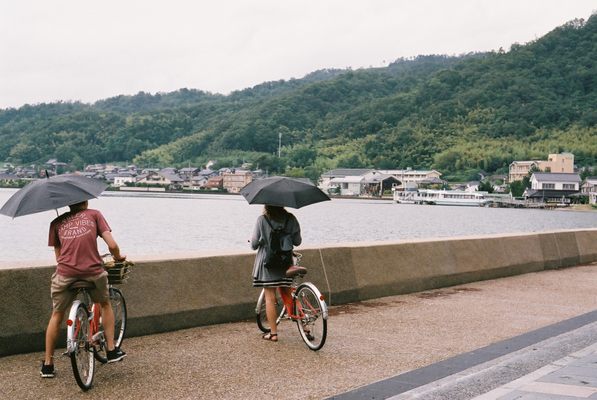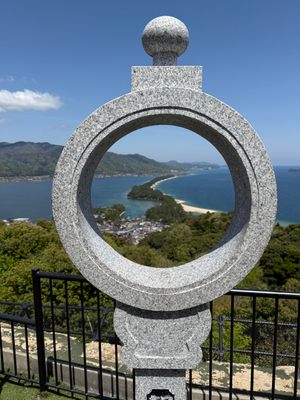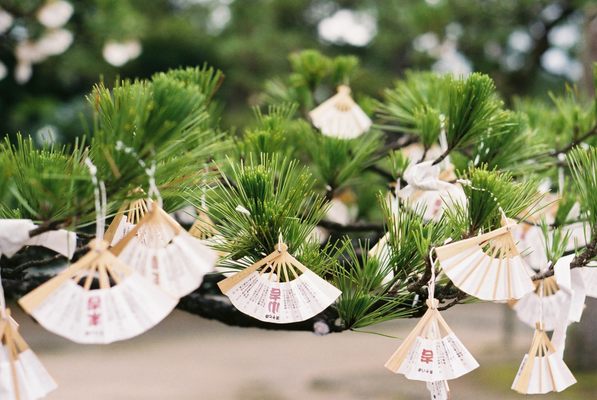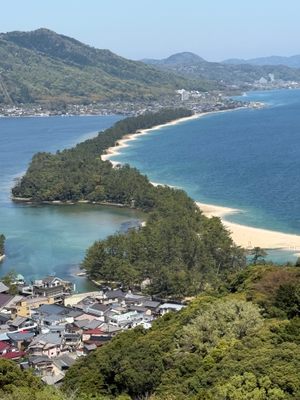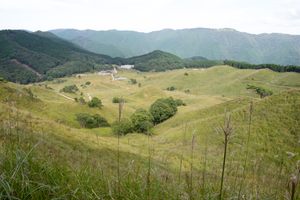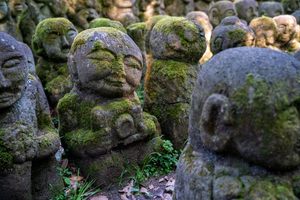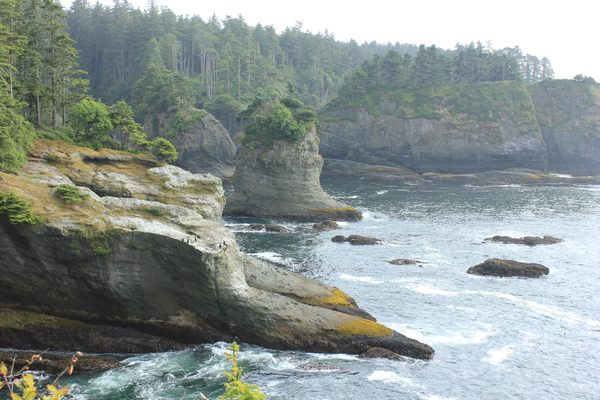About
A narrow, two-mile long sandbar in Miyazu Bay is covered with thousands of pine trees. Called Amanohashidate (which translates to "Bridge to Heaven"), it's flanked by Mount Moju and Kasamatsu Park. Though the two spots offer a spectacular overlook of the snaking strip of land, the best way to take in the scenery is to turn around and stick your head between your legs.
The “Bridge to Heaven” in Kyoto is maybe the most versatile of the "Three Views of Japan." It offers two different vistas: one for those who just look while right-side up, and another for those who choose to spy the sandbar through their legs.
From the upside down position, the bridge appears to be a dragon flying into heaven. Viewing it this way is said to bring the visitor luck. Even if the superstition isn't true, seeing people looking at the world upside down through their legs is at least a little amusing.
If you do choose to remain right-side up, you'll still find a beautiful sight. In 1643, Japanese scholar Hayashi Gahō declared Amanohashidate, along with Matsushima and Itsukushima Shrine, one of the “Three Views of Japan.” To ensure these three stunning places remain appreciated and well taken care of, the country’s Agency for Cultural Affairs has officially declared them all "Special Places of Scenic Beauty."
Related Tags
Know Before You Go
Driving is the easiest way to explore Amanohashidate and the Tango Peninsula. However, public transport is possible for Amanohashidate. From Nijo Station in Kyoto you can take the Limited Express Hashidate to Amanohashidate Station. It’s just under two hours and will set you back about ¥4,500 if you’re not using a Japan Rail Pass.
Hidden Japan: Sado Island, Nara & Kyoto
Explore a different side of Japan.
Book NowPublished
November 30, 2017


